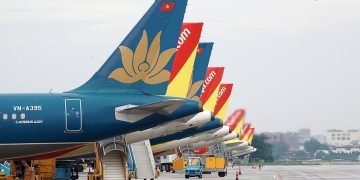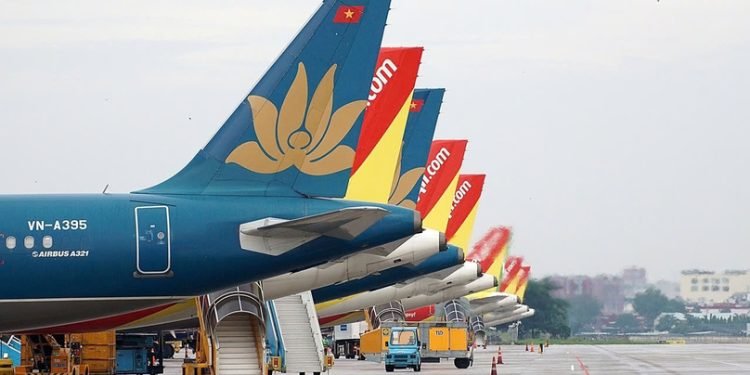Vietnam’s air logistics sector, a critical driver of the country’s trade and economic growth, is encountering significant hurdles in its journey toward sustainable development. Despite its strategic position in Southeast Asia and a booming export-driven economy, the industry is grappling with infrastructure constraints, regulatory challenges, and environmental concerns.
Key Challenges Facing Vietnam’s Air Logistics Sector
- Infrastructure Limitations:
- Insufficient airport capacity and outdated facilities hinder the sector’s ability to handle increasing air cargo volumes.
- Limited cold chain infrastructure impacts the efficiency of perishable goods transportation.
- Regulatory and Bureaucratic Hurdles:
- Complex customs procedures and inconsistent regulatory frameworks create delays and inefficiencies.
- Harmonizing policies with international standards remains a challenge for seamless global trade.
- Environmental Concerns:
- The sector’s reliance on carbon-intensive operations clashes with global sustainability goals.
- Adoption of greener practices and technologies is slow due to high implementation costs.
- Competition and Regional Rivalry:
- Neighboring countries, such as Thailand and Singapore, offer better-developed logistics ecosystems, posing stiff competition to Vietnam.
- Labor and Skills Gaps:
- A shortage of skilled workers in logistics and air cargo operations limits the sector’s growth potential.
Opportunities for Growth and Sustainability
- Investing in Infrastructure:
- Expanding airport capacity and upgrading facilities, including specialized cargo terminals, will enhance the sector’s ability to meet growing demand.
- Development of multimodal logistics hubs to integrate air cargo with other transport modes can improve efficiency.
- Digital Transformation:
- Adopting technologies like blockchain for transparent documentation, IoT for real-time cargo tracking, and AI for operational optimization can address inefficiencies.
- Green Logistics Initiatives:
- Implementing alternative fuels, electrifying ground operations, and adopting carbon offset programs can align with global sustainability efforts.
- Policy Reforms:
- Streamlining customs procedures and aligning local regulations with international standards will facilitate smoother operations and attract foreign investment.
- Public-Private Partnerships (PPPs):
- Collaborations between government and private stakeholders can drive innovation and fund critical infrastructure projects.
Vietnam’s Strategic Position
Vietnam’s proximity to key global trade routes and its role as a manufacturing hub make it a critical player in the global supply chain. Leveraging these advantages while addressing systemic challenges can position the country as a leader in sustainable air logistics in Southeast Asia.
Looking Ahead
While Vietnam’s air logistics sector faces significant challenges, targeted investments in infrastructure, technology, and sustainability initiatives can unlock its vast potential. With the right strategies, Vietnam can enhance its competitiveness and contribute to a greener and more efficient global logistics network.
Stay tuned with The Logistic News for updates on logistics trends and developments in Southeast Asia.
#AirLogistics #VietnamTrade #SustainableLogistics #GlobalSupplyChains #LogisticsInnovation #VietnamEconomy























